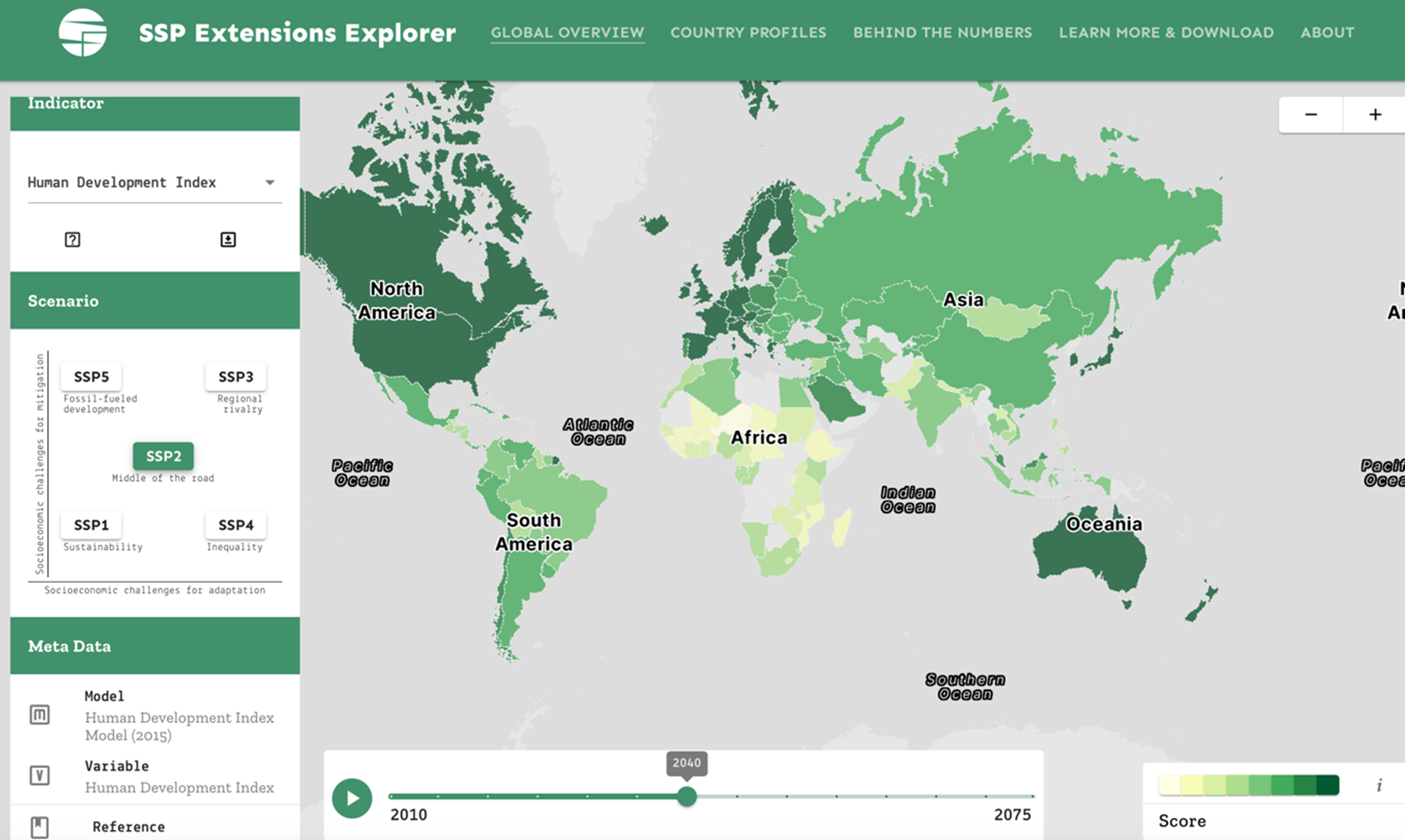
The International Committee on New Integrated Climate Change Assessment Scenarios (ICONICS) and IIASA have launched a new Shared Socioeconomic Pathways (SSP) Extensions Explorer as part of the ICONICS webinar series.
The SSP framework, widely embraced by the scientific community, serves as a crucial toolkit for exploring plausible future trajectories of socioeconomic development and its relationship with climate change. In their original setup, the SSPs are driven by three key quantified factors: economic growth, demographics, and urbanization. However, recognizing the evolving complexities of environmental and socioeconomic dynamics, researchers from various disciplines have advocated for the integration of additional indicators to augment the framework.
These additional indicators expand the portfolio of dimensions consistent with the SSP framework, which now includes a broad range of socioeconomic indicators from extreme poverty to gender equality. The SSP Extensions Explorer developed at IIASA, is a tool that gathers more than a dozen quantitative extensions to the framework, which have emerged in the literature since the publication of the original set of drivers. The primary objective behind it is to create a user- and model-friendly interface, which could act as a one-stop shop for accessing the SSP extensions and a platform that facilitates conversations about the next generation of scenarios.
“Through the new SSP Extensions Explorer, users can visualize, explore, and download data for all identified indicators,” says Marina Andrijevic, a researcher in the IIASA Energy, Climate, and Environment Program (ECE), who was behind the development of the Explorer. “The tool is mostly targeted at the global research community, in particular, the researchers using the SSP framework. However, it could also be interesting for anyone curious about long-term futures of our planet and society”.
The development of the SSP Extensions Explorer was a collaborative effort, made possible by contributions of the authors of the publications underlying the indicators. The tool was designed by a team of researchers and the Scenario Services and Scientific Software team from the IIASA ECE Program.
The tool was recently launched as part of the ICONICS webinar series. ICONICS is a committee that develops, facilitates, and promotes the use of socioeconomic development pathways to support interdisciplinary research and assessment of climate change-related risks. It also supports exploration of the effectiveness of adaptation and mitigation policies to reduce those risks within the context of the Sustainable Development Goals.
The SSP Extensions Explorer was supported by IIASA Innovative and Bridging Grant (IBGF) funding from August to December 2023.
Further information
SSP Extensions Explorer
News

22 July 2024
Are sustainable aviation fuels truly sustainable?

17 July 2024
Forests endure as carbon sink despite regional pressures

16 July 2024


